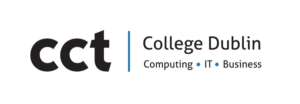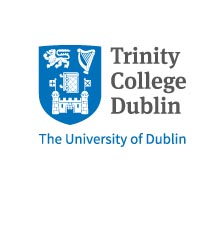Course Description
Master of Science (MSc) in Data Analytics
CCT College Dublin
The MSc in Data Analytics* is a postgraduate masters degree course aimed at IT graduates and professionals, and graduates from cognate/numeric disciplines.
The majority of companies today realise the value of data driven business strategy and are in need of talented individuals to provide insight into the constant stream of collected information. Leveraging the value of big data for strategic advantage has become an increasingly standard business practice globally, resulting in an exponential skills shortage of data analysts. This programme aims to produce graduates who will be able to apply for roles pertaining to Data Analytics across all sectors of the economy.
Taught modules on the MSc in Data Analytics are followed by a Data Analytics solution development group project allowing students to apply their knowledge to a specialised applied Data Analytics problem which will be industry-initiated and used as the context for planning, designing, building and testing potential analytical solutions. Modules include, programming, statistics, technology enabled data analysis using machine learning and artificial intelligence, data visualisation, research and ethical studies pertaining to the field. Multiple transversal skills are also embedded throughout the programme including time management, communication, critical thinking and analysis, research, presentation as well as management and leadership development, ethics, project management and evaluation, and professional judgement.
Learners on the full-time course will likely be IT graduates or graduates of cognate disciplines and learners on the part-time programme will typically comprise IT professionals and graduates of cognate disciplines who are currently in employment and who require upskilling due to the accelerated pace of economic digital transformation.
The MSc in Data Analytics programme is offered full-time over one year and part time over two years and will be delivered on a blended learning basis. Contact hours for the programme are a combination of traditional face-to-face classroom learning and virtual classroom also incorporating face to face and virtual lab sessions / workshops. Full time learners are required to attend 15 hours per week. Part time learners attend 8 hours per week, spread over 2 evenings and some weekend attendance would be required for campus based / virtual practical labs/workshops.
*subject to final validation.
| College Name | CCT College Dublin |
| Course Category | Computers & IT (Information Technology), IT Data Analytics |
| Course Type | Blended Learning - Mix of Classroom & Online |
| Course Qualification | Masters Degree |
| Course Location | Dublin, Ireland |
| Location Postcode | Dublin 2 |
| Course Start Date | 20th September 2021 |
| Course Fee | €8990 full-time or €4,250 per year part-time |
| Course Duration | 2 years part-time |
| Course Times | Day time contact hours for full-time course. Evenings and weekends for part-time course |
| Awarding Body | QQI |
| Title of Awarding | Master of Science in Data Analytics |
| Entry Requirements | CCT College Dublin has identified entry criteria and processes that will enable it to determine an applicant’s potential to succeed on the proposed programme. The direct entry route to this programme requires applicants to evidence numerate, technical and analytical ability to a minimum of NFQ level 8 standard. The following are accepted as appropriate evidence for direct entry: a. An NFQ Level 8 major award, or higher, in the discipline areas of ICT/Computing, Business, Science or Engineering or cognate discipline or b. An NFQ Level 8 major award, along with relevant experience in the area of Data Analytics and/or professional certification, may also be considered In both scenarios presented above, applicants will also be required to evidence ability in the application of mathematical concepts such as algebra, or spreadsheet analysis and formulas, database knowledge, for example, to a level 8 standard. This is essential to demonstrate applicants numerate, technical and analytical ability required to ensure capacity for the extent of mathematical and technical content related to the programme. This programme is designed for individuals who have previous knowledge in computing, analytics or similar through professional experience and/or educational qualifications. This programme is not suitable for individuals with only basic computer literacy. English Language Entry Requirement: Applicants whose first language isn’t English must demonstrate a minimum competency in the English Language of CEFR B2+. To fully engage in this programme applicants will be required to have access to the internet, a laptop or desktop PC with webcam, microphone and speakers or headset. The minimum recommended specification is Windows Operating System with a basic RAM Memory of 8GB DDR4 RAM with a basic processor Intel i5 (7th Gen and above) with a dedicated graphics card (or equivalent graphics option). Applications are also welcome from individuals who do not meet the standard entry requirements but wish to apply for entry based on prior learning (RPL) or prior experiential learning (RPEL). The College will thoroughly assess applications received through RPL and RPEL to ensure that candidates are able to evidence learning to an appropriate standard – normally the framework level equivalent to the direct entry qualifications requirement and demonstrate potential to succeed and benefit from the programme. Applications submitted on this basis will be assessed in line with the College RPL policy. |
| Career Path | The programme has been designed to produce graduates with the attributes required of data specialists and analysts today and the ability to continue to develop knowledge, skill and competence to remain competitive and employable in an ever-advancing discipline. On successful completion of the MSc in Data Analytics learners may progress to further study or research opportunities. Graduates of the MSc in Data Analytics should be able to secure professional roles at intermediate and advanced positions in data analysis across all sectors of the economy and progress to leadership or research roles using skills related to those learned in the programme curriculum. Potential roles include but are not limited to: Business Intelligence Analyst, Data Analyst, Data Scientist, Data Engineer, Quantitative Analyst, Data Analytics Consultant, Operations Analyst, Marketing Analyst, Data Project Manager, IT Systems Analyst, Transportation Logistics Analyst, Financial Data Analyst, Healthcare Data Analyst. According to Grad Ireland, who issue regular surveys to Industry on employability trends, the graduate recruitment trends for Ireland and Northern Ireland specifically list data analytics as an area where recruiters saw one of the biggest skills shortfalls at 46%. This programme aims to produce graduates who are technically skilled, problem solvers, professional, good communicators and effective team players as well as leaders. The graduate will also be well-placed to pursue further academic or professional study. |






Comments, Questions & Reviews